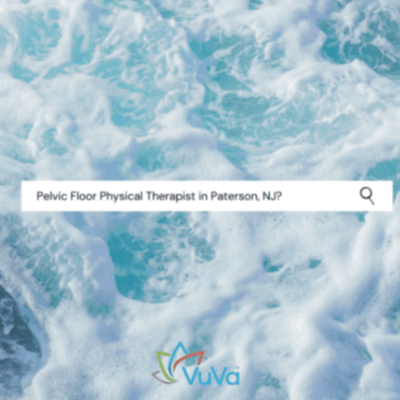
| Tara Langdale
Atrophic Vaginitis is a Reality for Breast Cancer Survivors
Vaginal problems are often one of the last things women realize they may have to deal with after breast cancer treatment. Unfortunately, this is a reality that affects up to 70% of women who have undergone treatment for breast cancer. This is because some types of radiation therapy commonly cause a condition known as atrophic vaginitis.
Two of the most common breast cancer treatments are chemotherapy and endocrine therapy. Both treatments can cause various uncomfortable side effects (including ovarian failure), which sadly leaves many women with more to worry about than cancer recovery alone.
WHO GETS ATROPHIC VAGINITIS AND WHY?
Atrophic vaginitis is something many women experience after the menopause (around 50%), yet it is even more prevalent among postmenopausal breast cancer survivors (around 70%).
Atrophic vaginitis happens when the levels of circulating estrogen stop reaching the urinary and vaginal receptors. This is often a result of chemotherapy or endocrine therapy, which can induce an early menopause even in women under 40 years of age.
SYMPTOMS OF ATROPHIC VAGINITIS
The condition can result in a number of unpleasant and disruptive issues, such as:
- Vaginal dryness
- Irritation of the vulva and surrounding skin
- Burning sensations and soreness due to inflammation
- Pruritus
- Vaginal discharge (vaginal mucosa)
- Dyspareunia (painful sex)
- Spotting or bleeding after sex
- Shortening and tightening of the birth canal (vaginal stenosis)
- Thinning of vaginal walls
- Urinary incontinence
- Painful urination (burning) and urinary tract infections
It is common for women suffering from atrophic vaginitis to find that their sex life is disrupted, due to painful penetration or excessive dryness. The resulting fear of penetration can lead to development of vaginismus.
Your gynecologist or health care practitioner will be able to examine the vulva and vaginal opening, as well as the vaginal mucosa, to determine whether atrophic vaginitis is present.
WHAT CAN YOU DO IF YOU HAVE THE CONDITION?
HORMONAL TREATMENTS
Atrophic vaginitis sufferers are often prescribed hormonal treatments, such as Prasterone vaginal inserts containing the hormone DHEA (which encourages estrogen production). These are aimed at easing the effects of dyspareunia and increasing vaginal moisture levels, for example.
However, since the use of topical HT in breast cancer patients has only been studied in a small number of clinical trials, estrogen therapy should be undertaken with careful supervision.
USE OF VAGINAL DILATORS
One of the safest options for breast cancer survivors with atrophic vaginitis is vaginal dilators. These are especially helpful when women find themselves developing vaginismus because of the symptoms of atrophic vaginitis.
Vaginal dilators help with the gradual stretching of the vagina, helping to restore a more normal vaginal function and sexual health. Dyspareunia is likely to ease off, as are the symptoms of vaginal stenosis and vaginismus.
PELVIC FLOOR PHYSICAL THERAPY
It is also useful to perform kegel exercises to strengthen the pelvic floor, which you can do with the assistance of a pelvic floor physical therapist. Your therapist is likely to recommend using vaginal dilators as part of your treatment plan.
Lots of women find that a combination of all three treatments dramatically reduces the symptoms of atrophic vaginitis and its associated conditions. At the very least, vaginal dilators are a necessity for women with these symptoms.
Dilator therapy helps improve pelvic health and female sexuality. They are used to help a wide variety of female health concerns. Speak to your doctor today about how dilator therapy can help you.
Do you need to order vaginal dilators so you can start your pelvic floor therapy process? Made in the USA. Visit www.vuvatech.com
VuVa Dilator Company Helpful Links:
How do Neodymium Vaginal Dilators work?
7 Reasons for a Tight Vagina and How to Loosen
How to Relax Vaginal Muscles, Vaginismus & Sex
Vaginal Stretching - Keeping in Shape with Dilators
Do Dilators Really Work? Yes, and They can Improve Your Sex Life!
Shop for VuVa Vaginal Dilators
Tara Langdale Schmidt is the inventor of the VuVa Dilator Company. She has pelvic floor dysfunction herself and wanted to create a dilator set that is made in America that women can trust. VuVatech has been in business since 2014 and has helped over 50,000 women all over the globe. She patented the Neodymium Vaginal Dilator, that is clinically proven to help with blood flow and nerve pain.














